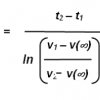I run a second set of blood (and urine) tests and compared with last year. Overall, they are not bad but neither excellent. Please feel free to comment and criticize! Again thank you to everyone here bothering to look at this as last year!
link to my June 2014 blood tests
Positive
- I am really much more satisfied with my hormones panel:
- Finally I could get DHEA-S in range. I think I could accomplish this with an extremely low supplementation (2x25mg per week) but I am sure the most important factor has been an increase in my strength training shown to increase this hormone.
- IGF-1 has been slightly lowering which is an objective for cancer growth control.
- Testosterone and free-T have been increasing while doing ok on DHT (and E2, to less extent)
- DHT has been lowering which is an objective for by prostate condition, trying not to fuel its growth in size (due to my BPH, had to go - successfully to TURP). Maybe a protective effect of my prostate protection formula.
- E2 has been increasing but still in the norm and aligned with values I had over almost 10 years. I am not taking any pharmaceutical aromatase inhibitor beside probably the gently acting stinging nettle contained in my prostate protection formula.
- TSH was and still in the norm. However it went down from a worrying 4 to 2.9. I reduced soy foods intake but did not stop it to grasp some benefits of its genistein content. I checked my iodine.
- For the slightly high calcium level I went and checked my PTH for first time which is in the norm. I did not cut out dairy but will further reduce.
- Ferritin went unfortunately up from a wonderful 98 to 115 (despite my IP6 supplementation) but still not that high as I had in my past (was up to 450!)
- I look to do better on my FFA panel as my palmitic acid (saturated FFA) has normalized. I need to address the GLA and DGLA though (see below).
- For the second time in 10 years, A1C went below 5, possibly due to the green coffee extract supplementation (chlorogenic acid) which however might have been negatively impacting homocysteine (see below).
- The objective of lowering chronic inflammation as much as I can is achieved with a consistently low hr-CRP.
Negative
- GLA (and DGLA) is consistently very low (which also brings to low Arachidonic Acid, a good thing for inflammation but not too much as it is important for cognition). I am considering a moderate supplementation of GLA.
- Total cholesterol and LDL went up, despite supplementation with red yeast rice (1200mg)! Unfortunately I relaxed on my diet (dairy in particular), which was particularly stupid maybe relying on some supplement protection! Not good for my prostate too!! I will control my diet more strictly but still continue to supplement. My doctor was not that worried by the values and also recommended this approach.
- Homocysteine went up to very high values (16.1) despite supplementation of B-complex and TMG. I am pretty sure my niacin supplementation (despite only 400-500 mg) affected this as well as some green coffee extract (chlorogenic acid) to control post prandial glucose spikes. Both are confounding! I also may not well absorbing folate and considering giving another try to methylfolate 1000mcg. My 23andMe results also look quite good on the methylation pattern. Please challenge this! I do not want to use high folate for too long not to fuel cancer!
- Fasting glucose is still worrying (despite very good A1C though). Doctor was not that worried at this (when looking at A1C) and recommended to watch what I was eating prior to the test. I am still confused on the labs: they also did a serum measurement which turned to be 68.5 (ref 72-108) and calculated insulin sensitivity (HOMA) based on that value at 0.79 (the calculation is: Glucose is mg/dl * Insulin in mIU/l / 405).
- RBC magnesium was also a negative surprise despite some supplementation (160mg). I upped the dose and got prescribed a special formula/dose (Diasporal/300mg) which was more effective in the past. This is a possible additional explication of my high homocysteine level (Mg is needed in the conversion of homocysteine to SAMe, via methionine).
- Calcium is again on the high side. I checked PTH which is normal though. I did not cut out dairy but will further reduce. Please challenge this!
- I did not report, for simplicity, my spot urine tests but maybe you can help understanding (so far absolutely no clue or preoccupation from doctors) the urine low creatinite value (5.8 mmol/l with ref range 8.8-16) and urea 188 mmol/l which gives a urea/creatinine ratio of 32.4 which is 10x higher than the ref range (2.54-2.82). This is now so for the 4th year in a row and I still do not understand it. Can you explain?
Lesson (re)learned
I am still studying all this and try to understand/find fixes. GP docs are often lost at much of this stuff and of course cannot come up with sensible replies when only given 10-15 mins max. to tell you all! It's good to have Forum like this one and people as you to discuss! Supplementation can help but if you relax on diet and exercise it turns to be almost useless and might unbalance markers. You need to keep fixing big things first. Still reduce animal fats, dairy, increase whole plant foods and … be happy 
Thank you for your criticisms!!
Edited by albedo, 03 August 2014 - 04:42 PM.



























































